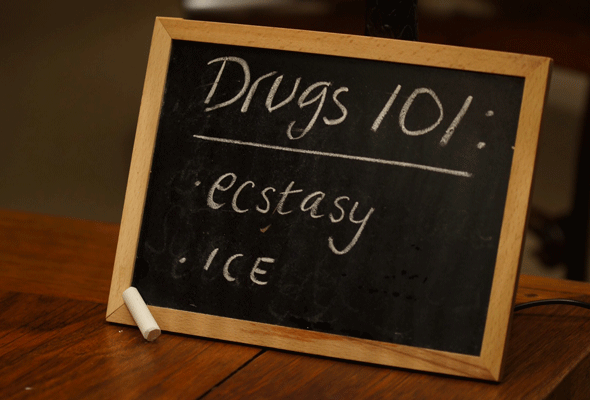Drug education: know the facts
Giving young adults all the right information about illicit drugs before they experiment, according to Clinical Director of Metro North Mental Health, is the best way to reduce harm.

Giving young adults all the information about drugs before they experiment is the best way to reduce harm.
The reality is most people going through adolescence are going to take risks and experiment with illicit substances. Clinical Director of Metro North Mental Health Dr Jeremy Hayllar, says that young adults are fed up with society’s negative approach to drug education, which has been, ‘don’t do drugs’. He says that drug education needs to be about informing people so they understand the risks involved before they try.
The 2010 National Drug Strategy Household Survey found that 2 in 5 people in Australia had used an illicit drug in their lifetime and that the age group most likely to use illicit drugs was 20 to 29 year olds, with a staggering 32.6 per cent, making the right type of drug education with aim to reduce harm, vital for young Australians.
Drug education is a controversial area, and Dr Hayllar emphasized that over publicized drug information can lead to an influx in enquiry and use.
“We have to recognise not all the publicity and knowledge is helpful and good,” says Dr Hayllar.
“The wrong sort of discussion can lead to a great interest developing and can typically be followed by many more people trying to access and use a particular substance.”
The right approach to drug education has the potential to influence people’s decision-making, and suppressing information isn’t always the answer.
“It is obviously how the information is presented, which will influence the interest and likelihood of people going out to experiment and try to access certain substances,” says Dr Hayllar.
The aim is to encourage young Australians to seek information about the risks involved in drug use before they try. If they are aware of the consequences and risks to their health before they experiment with drugs, there is, according to Dr Hayllar, “a much better chance that they are not going to get into too many problems”.
The National Drugs Campaign started a new campaign in 2011 that is implementing this policy through initiatives like Making Your Own Choices About Drugs, and national television and radio advertising campaigns. These campaigns aim to gain awareness about the consequences and risks involved with illicit drug use so young Australians know the facts before they make their choice.
However, identifying all the facts, for example the effects of illicit drugs like ecstasy can be difficult. The unpredictable natures of ecstasy make it a controversial topic when dealing with drug education because not all experiences are the same.
The poor quality of ecstasy in recent years has resulted in a rise in the amount of ecstasy consumed at once, making effects unidentifiable. “That can be a dangerous situation, you don’t know what the fillers are,” says Fairlie Mcllwraith, senior drugs research officer at the University of Queensland.
Dr Hayllar has identified that the effects of the drugs are harder to predict when users are using a range of substances at once. As a result it is paramount that we understand at least the potential risks invovled.
“If we say that all drug use is far too dangerous, yet people know others who use and feel fine then that message loses its meaning too,” says Dr Hayllar, “we need to recognize there is a risk”.
Listen to the podcast below, where Dr Jeremey Hayllar discusses ecstasy and ice, what they are and some important information to know before experimenting.
For more information on illicit drugs check out the National Drugs Campaign website.

